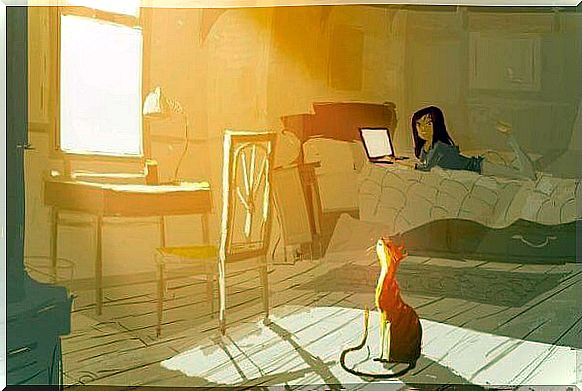Multitasking – A Danger To Our Brain

Multitasking, or doing several things at once, is not a good habit for our brain. Although we often think it is something positive, it is not necessarily productive to watch TV while using our mobile phone and talking to our partner at the same time. It prevents us from focusing and reflecting on a loss of cognitive and relational efficiency (so much so that social networks have gone from being social networks to becoming antisocial networks).
In our stressful world, the present has become a place forgotten by our consciousness. We encourage distraction and get the brain used to changing jobs consistently. This also affects the expression and control of our emotions.

Imagine a man walking and stopping in the middle of a pedestrian crossing to think about the topics of discussion that were discussed during yesterday’s dinner with the in-laws. We probably all agree that this is not a good place to relax.
You may find this example excessive. Okay, so let’s instead imagine a person who loves music or a radio program, and who has made it a habit to walk along the street with headphones in an area with a lot of traffic. He does not run the same risk as our thinker, but his behavior is not recommended either.

Our music lover may be in the present because he is listening to something being played at that moment. But if you think about it, it’s a kind of pseudo-nu because the situation he’s in is not natural.
From this point of view, the technology we have created is one of the biggest culprits that has significantly increased the time we spend in this new dimension: multitasking.
We have devices that allow us to take movies and music with us anywhere. We have transformed time optimizers who at all costs try to fill every moment with something we like.
It is not that we live outside the present because of our worries about the future or melancholy for the past; it is because there are more and more layers to reach reality.

If we go to the gym, it is not uncommon to see an increasingly common character: the person with headphones who trains with an electronic book on the treadmill screen.
It is very difficult for us to focus only on one thing or to be completely absorbed in what we do. We are invaded by a feeling that we are wasting time, that we have empty channels that could be busy with helpful or satisfying information.
We may take a walk with our partner and feel that what we see is full of emptiness. It is not something we think about, but something that is automated within us. Without realizing it, we can actually pick up our phone and check the latest updates on various social networks or answer SMS.

We do all this without the feeling that we have stopped listening because we simply occupied another mind that was available. The problem here is that we only have one brain to rely on, and it is not directly good at dealing with two chores at the same time.
So without meaning to, we do not actually perform two tasks at the same time, but go from one to the other very quickly, much like running to the kitchen from time to time to check the ham in the oven.
It treats the two chores like the noise from the washing machine or the bus that can reach the next station in an instant. It all depends on the selective changes that take place, and not on what actually happens.

Why do we actively leave our reality? Why can we not set a margin so that we are presented with something interesting? Why do we feel we are wasting our time if we are not multitasking?
Because we have lost our patience. We have lost the patience to listen because what our friend says is so boring that we are looking for something in our pocket that is more fun.
For this option is easier for us than to get into the conversation and make it more interesting. For what we hear at the moment is monotonous, and we have included a technical outlet in our range of behaviors as an easy way to get away from it.
Maybe our lives get more hectic with each passing day, but we also get less and less patience when it comes to tolerating having to stop for a second. It is as if stimulants that are not naturally stressful have been infected by those that are. As if we get stressed out by going to bed for a while or listening to a good friend. Let us reflect: do we really want this?









